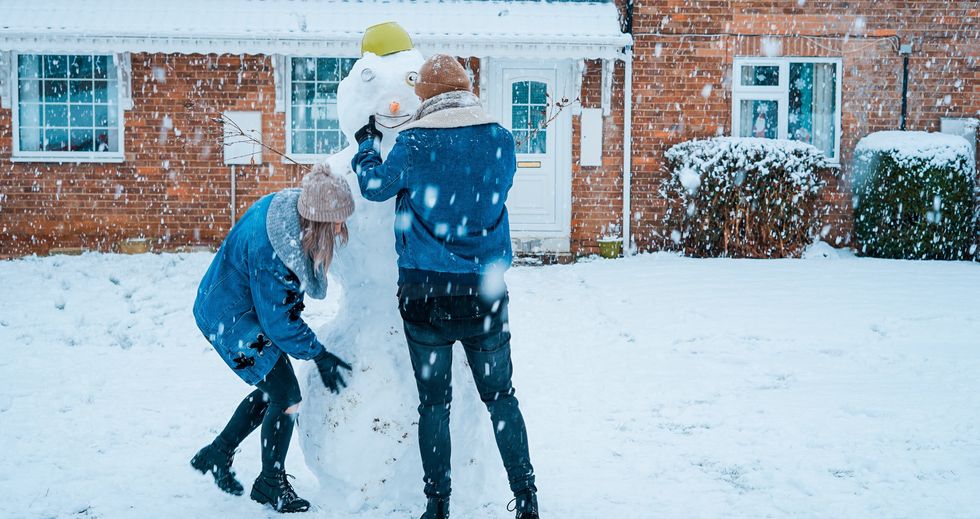Though we may think of all the many pop culture references and memes when we hear the phrase "cuffing season," you might be surprised to hear that there is actually science behind the concept. In fact, there's quite a lot of it.
Here are 5 reasons everyone feels the need to get "cuffed up" when the weather gets colder:
We are constantly surrounded by outside influence and pressure.
Entertainment and advertising industries, as well as our own friends and families, prime us to believe we should have a special someone around this specific time of year. There are the jewelry commercials, which feature overly happy couples, the seasonal romantic comedies airing at all hours of the day, and the questions from relatives, which usually sound something like, "You dating anyone yet?" or maybe even, "When are you planning on giving us some grandkids?"
The association between the holiday season and romance makes sense. Holidays revolve around the idea of spending time with loved ones and spreading joy. And who wouldn't want to do that with a significant other?
We have a natural human need for safety and security.
Another explanation is that people crave the literal and figurative heat that being in a relationship provides. Snuggles are never bad, but when it's particularly cold outside, it really doesn't hurt to have a warm body to cuddle up next to. The desire to feel warmth during the winter months goes back to the most basic human need for safety and security. Being with someone during these months helps to satisfy that need.
Everyone knows winter is sad boi szn.
Feelings of sadness and loneliness also tend to increase during the colder months, and some people believe finding a partner might help to compensate for the negative emotions. Having a specific person you can depend on to hang out with is particularly helpful in combating feelings of isolation that might arise during the months when people tend to socialize less.
Our hormone levels change.
According to social psychologist, Dr. Justin Lehmiller, humans (particularly men) produce higher levels of testosterone in the fall season, which subsequently drive their urge to partner up.
We produce less serotonin.
Humans also produce lower levels of serotonin, or the "happy chemical," in the fall due to less exposure to sunlight, meaning pleasure must be sought out in other places… or people.
Whether or not you decide to seek out a significant other this cuffing season, remember to gear up: Winter is coming.
Follow Swoon on Instagram.


















